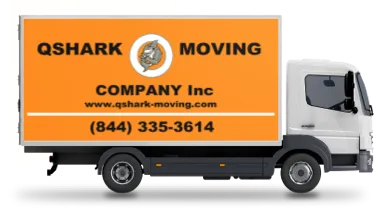How To Get A COI for Moving

Introduction
Relocating? Heard about the Certificate of Insurance (COI), but not sure what it entails. In the complex moving process, especially in bustling cities like Los Angeles, a COI isn’t just a piece of paper—it’s your peace of mind. Let’s dive deep into the various aspects of COI and why it’s indispensable.
Step-by-Step Timeline for Getting a COI for Moving
| Step | Time to Request COI | What You’ll Need to Provide | Types of Insurance Buildings May Request |
|---|---|---|---|
| Step 1 | Immediately After Booking Movers | Name, Contact Details, Move Date | General Liability Insurance |
| Step 2 | 1-2 Weeks Before Move | Building Requirements, Insurance Confirmation | Worker’s Compensation |
| Step 3 | 1 Week Before Move | Finalize Details, Confirm with Building Management | Auto Insurance |
Why is a COI Necessary?
Requirement by Building Management Companies
If you’re moving into luxury buildings or even certain hyper-luxury buildings in LA, the building management company often demands a COI. It’s not just a formality; it’s a necessity.
Table: Why Do You Need a COI?
| Reason | Explanation |
|---|---|
| Building Management | Required for moving in/out |
| Damage Protection | Safeguards against potential damages |
| Legitimacy | Verifies the moving company’s insurance coverage |
Protection Against Potential Damages
Think of a COI as your safety net. If damages occur, you’ll be less likely to be held liable. It’s not just about protecting your stuff but also securing your wallet.
Ensuring the Legitimacy of the Moving Companies
A COI verifies that you’re dealing with a reputable moving company with adequate insurance coverage, including liability insurance and workers’ compensation. The COI shows proof that the moving company’s insurance company is legit.

Components of a Moving COI
Personal and Property Manager Details
Your details, the property manager’s contact, and the moving company’s information are crucial components of a COI.
Insurance Confirmation
The COI confirms the insurance policy limits and types of coverage, ensuring they match the building management’s requirements.
Building Address, COI Coverage Details, Insurance Policy Information
The COI also lists the new location, the move date, and even fax numbers for your own records.
Steps to Acquire a COI for Moving
Choose a Reputable Mover: Choose a professional moving company offering the highest insurance coverage.
Request a Sample COI: Get a sample COI to validate with your building manager.
Submit a COI Request: File a formal COI request well in advance.
How Long Does it Take to Receive a COI?
Don’t procrastinate. Usually, it takes several hours to a few business days.
How Do You Ask for a COI?
Simple—request a COI for moving from your chosen company. Many NY insurance companies, like Roadway Moving, excel in quick COI production.
What Happens in the Absence of a COI?
Delays and Financial Losses
No COI spells trouble. Expect delays, especially if moving after hours, and potential financial drains.
Risks and Liability
No COI? You risk being liable for damages and may lack proper insurance coverage.
Choosing the Insured Moving Company
COI Efficiency
Opt for companies efficient in the COI process. Check their time slot availability too.
No Additional Charges for COI Production
Some companies, especially smaller companies, charge for COI production. Dodge that bullet!
Table: Choosing the Right Moving Company
FactorImportanceCOI EfficiencyHighNo Additional ChargesModerate to HighAdequate Insurance CoverageMust-have

The Role of Worker’s Compensation in Moving
When you’re neck-deep in move-in paperwork and trying to ensure everything is perfect for your move, one aspect that might escape your attention is worker’s comp. But it’s an essential piece of the puzzle, especially when dealing with building management requirements.
Many buildings require that the moving companies you hire have worker’s compensation as part of their insurance package. This is not just a frill but a crucial element in the moving company certificate. Worker’s comp ensures that if an employee of the moving company is injured while moving your belongings, their medical costs and lost wages are covered. It’s a win-win for everyone involved; you’re not held liable, and the employee is protected.
How much coverage is needed for worker’s compensation often depends on the policies set forth by your apartment building’s management and the type of apartment insurance they hold. Always verify this aspect when reviewing your move-in checklist to avoid any last-minute surprises or delays.
Conclusion
A COI offers legal protection and peace of mind during the moving process. It’s your financial safety net and your ticket to a smooth residential or commercial move. So before your moving day, ensure your COI is in hand!
Frequently Asked Questions (FAQs)
Why Do Building Managers Request COI?
It minimizes their risk and legally protects the buildings.
So, what are you waiting for? Secure that COI and make your move a walk in the park!
What is a Certificate of Insurance (COI) in the Context of a Moving Company?
A COI is a document issued by an insurance company that provides proof that the moving company has adequate insurance coverage. It assures both you and the apartment building’s management that you’re covered in case of damages or other issues.
How Do You Ask for a COI from a Moving Company?
Simply request it directly from the moving company you’ve hired. Many reputable companies will have a streamlined process for generating a COI.
Is a COI Mandatory for Every Apartment Building?
Not always, but it’s a non-negotiable requirement in certain luxury buildings. Always check with your building management to know the specifics.
What Happens if There’s an Insurance Claim During the Move?
If something happens during the move and you must file a claim, the COI is a proof of insurance coverage. It will list the following details, such as policy numbers and coverage types, essential for filing a claim.
What Information is Generally Included in a COI?
The COI includes various details, such as:
Name and contact information of the insured (usually the moving company)
Description of coverage and policy limits
Your apartment building as the certificate holder
Effective dates of the coverage
While technically possible, you risk issues, especially if you’re moving into a certain luxury building. You may face delays, fines, or be held responsible for any damages that occur.
What Should I Do After I Receive the COI?
After you receive your COI, check to make sure it contains the following details:
Your name and the moving company’s name
The type and amount of coverage
Effective dates of the policy
Any other move details specific to your situation, such as time slots or elevator restrictions
This ensures that everything aligns with what your apartment building requires and what the moving company has promised.


 The Quick and Easy Way to Find San Diego Labor Only Movers
The Quick and Easy Way to Find San Diego Labor Only Movers How Far Is Oceanside From San Diego
How Far Is Oceanside From San Diego Why is San Diego Cheaper than LA? An In-Depth Analysis
Why is San Diego Cheaper than LA? An In-Depth Analysis How Much Does It Cost To Move From San Diego to Los Angeles in 2024?
How Much Does It Cost To Move From San Diego to Los Angeles in 2024? What Do Most Movers Charge Per Hour?
What Do Most Movers Charge Per Hour?